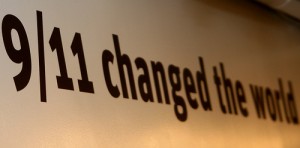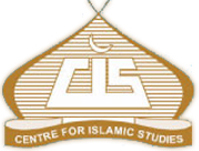 The horrific violence that took place on September 11th 2001 spawned many negative – and a few positive – realities. Before going in to any discussion about it, let’s look at the facts:
The horrific violence that took place on September 11th 2001 spawned many negative – and a few positive – realities. Before going in to any discussion about it, let’s look at the facts:
The
The major negative effects of 9/11 were:
- The murder of 3,000-plus innocent people, whose “crime” was going to work to support their families.
- Demonstrating our 800-billion-dollar a year defense budget (which is six times more than China, who is next on the list of defense spending) has major holes in it. Of course, there are the hundreds of previous government officials, military officers, scientists and scholars of the highest institutions that have brought forth testimonies and evidence that there are major issues in the official story of 9/11, which questions the ease by which Bin Laden and his crew orchestrated these horrendous attacks from the mountains of Afghanistan.
- A million innocent Afghani and Iraqi people have been murdered, whose only “crime” was having a corrupt government.
- The destruction of those two innocent countries, causing chaos, division and strife.
- The placement and support of a highly corrupt regime in Afghanistan.
- The two wars in Afghanistan and Iraq fueling a fringe element of extremist ideology amongst Muslims.
- Mainstream mass media blaming 1.5 billion Muslims for this and spreading fear against Islam and Muslims the world over. Whether fueled by strategic anti-Islam agenda or just trying to create an attractive story, images like that of the World Trade Center burning, and then fading into a photo of Muslims engaged in prayer, have played a major role in the formation of hate groups, which produce the likes of the recent Norwegian terrorist Anders Breivik.
- Giving credence and purpose to the anti-Islam movement that has existed since the time of the Prophet Muhammad ﷺ.
- The rapid downfall of the U.S. and thus the world economy.
Major positive effects:
- The millions of curious objective people who didn’t accept the anti-Islam rhetoric and researched the faith and interacted with Muslims, causing most of them to have a favorable view of Islam and Muslims, as well as multitudes embracing Islam.
- It woke up many Muslims and their Islamic centers to fulfill their responsibility in presenting the message of Islam to their neighbors.
- The removal of Saddam Hussein and the Taliban from power.
When comparing these two sets of facts, it becomes obvious that this tragedy was ugly and highly negative. It produced anger, hatred, bias, fear, chaos, bloodshed and poverty. I was talking to a friend of mine yesterday who is a Methodist minister and I mentioned to him that, although Muslims mourned the loss of 9/11 and condemned the evil that caused it, we feel uncomfortable with these anniversaries. We feel that the anniversary says “Don’t forget when those “Muslim” terrorists attacked our country, so let’s join in solidarity against them.” The minister agreed that an anniversary should be a remembrance of a positive joyous occasion.
Islam is about beauty, mercy and God-consciousness and it should be remembered and understood as such. There is a famous hadith which says, “Indeed God is beautiful and He loves beauty…” (Muslim). God is defined primarily at the beginning of each chapter of the Quran as the loving, merciful, gracious, compassionate, forgiving, beneficent, etc. Muslim theologians have agreed from the time of the Prophet until this very day that the most comprehensive verse of the Qur’an about the message of Islam is:
“Indeed God calls for justice, a high standard of virtuous interaction, and preserving the rights of kinship. He forbids ugly immorality, sin and aggression. He reminds you so that perhaps you will be mindful.”(Qur’an, 16:90)
The acts of 9/11 were completely in contrast to this authoritative definitive verse of the Qur’an, so we will not accept the horror of 9/11 as being related to Islam. The burden now rests on the shoulders of every Muslim to understand their faith correctly and how to properly relate it to our neighbors. In doing this, we can promote the truth of Islam and dispel the lies and anti-Islam rhetoric.
This requires us to achieve balance in our approach to the world, as it relates to spiritual tolerance and intellectualism, while remaining proud of the divine message that we are calling to.
“Thus, We have chosen you to be an ideal moderate balanced nation so that you may be witnesses upon mankind and that Messenger can be a witness for you.”(Qur’an, 2:143)
We must step out of our enclaves and interact with society according to the values of this verse and the rest of the Qur’an and the Sunnah. This is first done by building relationships with neighbors, co-workers, classmates, the interfaith community, etc. The method is simple: be a Muslim, understand Islam and its priorities without coming off as preaching, and let it be known you are Muslim. The Qur’an says,
“Who is better in speech than He who calls to the path of God and works righteousness saying, ‘Indeed I am a Muslim.’”(Qur’an, 41:33).
Presenting Islam is based upon wisdom and gentle preaching, as mentioned in the Qur’an:
“Call to the path of your Lord with wisdom and gentle preaching…” (16:125)
This verse, in conjunction with the previously-mentioned verse, dictates that we first act like Muslims, and if the chance arises we present our message. First of all, this means it is NOT correct to get into theological debates with people as an act of da`wah. Very rarely will you change someone’s mind about religion by proving something to them in a debate. In many cases ,you will alienate them with your dogmatic religiosity. If discussion naturally goes somewhere, or you are asked a specific question, then you can mention a point about Islam. In other cases, once you’ve built a good relationship, you might have an open religious discussion. In any case, you must present Islam with wisdom and understanding, which is a big gift from God that we must strive and pray for:
“…Whoever has been given wisdom has been given a lot of good…” (2:269)
Finally, one of the most important parts of our mission as Muslims, that we are very weak in, is community service. Every single Mosque should have an active role in soup kitchens, clothing the homeless, keeping the city clean, etc. In my opinion, this weakness in our community is a result of our lack of seeing this land as ours and the inhabitants as our people, our brothers in humanity and nationality. Don’t forget how the Qur’an refers to the Prophets and their people:
“We sent to the city of Ad their brother Hud. He said, “O my people, worship God as there is no god other than Him” (11:50)
We will conclude with a verse which sums up our responsibility,
“You are the greatest nation brought forth for the benefit of mankind. You enjoin all good; you forbid all evil and believe in God…” (3:110)
 Center for Islamic Studies CIS
Center for Islamic Studies CIS
